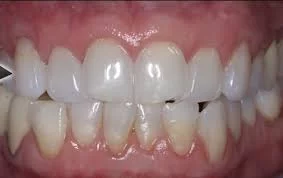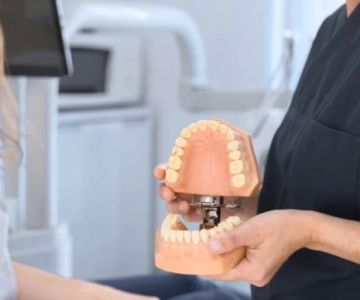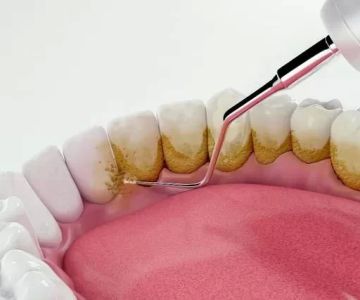
- Understanding Gum Recession and Its Causes
- Non-Surgical Approaches to Treat Gum Recession
- Natural Remedies and Lifestyle Changes for Gum Health
- Real-Life Examples of Successful Non-Surgical Treatment
- Professional Advice for Managing Gum Recession
- Where to Find Effective Products and Support
1. Understanding Gum Recession and Its Causes
Gum recession occurs when the gum tissue surrounding the teeth gradually pulls back, exposing more of the tooth or its root. This can lead to increased sensitivity, higher risk of decay, and aesthetic concerns. Many people wonder how to treat gum recession without surgery because surgical options can be costly and invasive.
The primary causes of gum recession include aggressive tooth brushing, periodontal disease, genetic predisposition, hormonal changes, and habits such as teeth grinding. Identifying the underlying cause is crucial to choosing the most appropriate treatment plan, especially when aiming for non-surgical solutions.
The Progression and Impact of Gum Recession
When gum recession advances unchecked, it can expose tooth roots, making teeth vulnerable to decay and sensitivity. Additionally, it may cause gaps where bacteria can accumulate, potentially leading to gum infections. Early intervention is key to prevent further damage and avoid surgery.
2. Non-Surgical Approaches to Treat Gum Recession
Many effective treatments exist that do not require surgery, and these can slow, stop, or even partially reverse gum recession if applied consistently and early enough.
Improved Oral Hygiene Techniques
Switching to a soft-bristled toothbrush and using gentle brushing techniques can prevent further gum damage. Also, incorporating flossing and antibacterial mouthwashes reduces plaque buildup, which is a major contributor to gum recession.
Professional Dental Cleanings
Regular cleanings remove tartar and bacteria that irritate gums. Scaling and root planing, a deep cleaning method, helps smooth the root surfaces, promoting gum reattachment and healing.
Use of Desensitizing and Remineralizing Products
Toothpaste and gels containing fluoride, calcium phosphate, or other remineralizing agents can help protect exposed roots and reduce sensitivity while encouraging natural repair processes.
3. Natural Remedies and Lifestyle Changes for Gum Health
In addition to clinical treatments, natural remedies and healthy habits can play a significant role in managing gum recession without surgery.
Oil Pulling
Ancient practices like oil pulling with coconut or sesame oil have been shown to reduce harmful bacteria and improve gum health when done regularly.
Balanced Diet and Hydration
Eating foods rich in vitamins C and D supports gum repair and reduces inflammation. Staying hydrated also helps maintain saliva flow, which naturally protects gums.
Avoid Tobacco and Stress
Tobacco use and chronic stress both impair gum healing. Quitting smoking and adopting stress management techniques can significantly improve gum condition.
4. Real-Life Examples of Successful Non-Surgical Treatment
Linda, a 42-year-old teacher, noticed early signs of gum recession after years of vigorous brushing. Instead of opting for surgery, she consulted her dentist who recommended a tailored oral hygiene routine combined with professional cleanings and desensitizing toothpaste. Over six months, Linda reported reduced sensitivity and visible improvement in gum contour, showing that non-surgical treatment can be effective when applied diligently.
Similarly, Jason, a software engineer, used natural remedies like oil pulling and improved diet alongside dental check-ups. His commitment helped stabilize his gum recession and avoid invasive procedures, illustrating the power of lifestyle changes.
Clinical Evidence Supporting Non-Surgical Methods
Studies show that when gum recession is caught early, non-surgical treatments can halt progression and enhance tissue health. While surgery may still be necessary in advanced cases, many patients benefit significantly from conservative approaches.
5. Professional Advice for Managing Gum Recession
Dental professionals emphasize the importance of early detection and personalized care plans for gum recession. Here are some expert recommendations:
Regular Dental Visits
Routine examinations allow dentists to monitor gum health and intervene promptly with non-surgical treatments.
Gentle Oral Care Tools
Using electric toothbrushes with pressure sensors or ultra-soft brushes can reduce mechanical trauma to gums.
Customized Home Care
Dentists may suggest specific toothpaste, mouth rinses, or gels tailored to protect sensitive areas and promote healing.
Behavioral Modifications
Modifying habits like brushing technique, diet, and smoking cessation form a vital part of managing gum recession without surgery.
6. Where to Find Effective Products and Support
For those seeking the best products and professional guidance on how to treat gum recession without surgery, Dentistry Toothtruth offers comprehensive resources. Their expert team can recommend appropriate oral care products such as gentle toothbrushes, specialized toothpaste, and natural remedies that support gum health.
Whether you are looking to prevent further gum loss or improve existing recession, Dentistry Toothtruth provides trustworthy advice and access to quality products tailored to your unique oral health needs.







 Westgate Dental Arts
Westgate Dental Arts Coventry Family Dental
Coventry Family Dental Familia Dental
Familia Dental Dr. Daniel S. Fife, DDS
Dr. Daniel S. Fife, DDS Dentistry At Suburban Square: Michael I. Wollock, DMD
Dentistry At Suburban Square: Michael I. Wollock, DMD Comfort Care Dental
Comfort Care Dental The Importance of Oral Health Education During Pregnancy for a Healthy Pregnancy
The Importance of Oral Health Education During Pregnancy for a Healthy Pregnancy Why Skipping Dental Checkups Can Lead to Bigger Oral Health Problems
Why Skipping Dental Checkups Can Lead to Bigger Oral Health Problems Advantages of Porcelain Dental Restorations
Advantages of Porcelain Dental Restorations Best Tips for Brushing Your Teeth Properly for Healthy Gums: Essential Techniques for Oral Health
Best Tips for Brushing Your Teeth Properly for Healthy Gums: Essential Techniques for Oral Health How Can Diabetes Cause Tooth and Gum Problems? Preventing and Managing Oral Health Issues
How Can Diabetes Cause Tooth and Gum Problems? Preventing and Managing Oral Health Issues Healthy Habits for Promoting Good Oral Health and Hygiene: Tips for a Healthy Smile
Healthy Habits for Promoting Good Oral Health and Hygiene: Tips for a Healthy Smile